10 Ways You Didn't Realize You're Working Out Wrong

With the hardest part over—getting started—the best is yet to come when it comes to exercising. But, for many first-timers, the busy scene can be quite frightening. Unsure of what to do, you may walk on the treadmill, or attempt to pump some iron. You're likely to spot someone who appears as if they know what they are doing, and your gut may tell you to do what they do. Copying your neighbor may seem like enough to learn the swing of the ropes, but unfortunately, it isn't.
In fact, a mentality like that can get you injured, and cause you to overwork certain parts of your body. You could even be doing everything wrong, even if it feels right! To unveil the most common workout mistakes beginners make in the gym, we reached out to three fitness experts. The first step in remedying these bad habits, or not picking them up at all, is knowing what they are. And that's why we're pointing them out.
And as you read this list, don't sweat it. You're not alone, and we're here to help. Banish these common workout mistakes, and your journey to reach your weight loss goal will be a whole lot easier. And to make your goal even easier still, check out these 15 Underrated Weight Loss Tips That Actually Work.
You're Over Enthusiastic

The rookie mistake when you get your first paycheck? Spend it all. The same goes the first time you hit the gym, as well. You put all of your energy into one session. Boom! Bring on the exhaustion. Which then, may provide you with reasons to create excuses the next time you should be working out. It can also lead to injury. Dr. Derek Ochiai, a board-certified orthopedic surgeon, and sports medicine expert, explains: "Deciding to push yourself hard and fast from the getgo increases the chances of overuse tendonitis, which can be a reason or excuse to stop going to the gym." Instead, don't be afraid to ease into your new activity. In fact, there are plenty of simple ways to boost your weight-loss goals, and most of them don't even involve the gym! Check out these 21 Sneaky Ways To Work Out—Without Hitting The Gym.
You Compete Against the Wrong Person
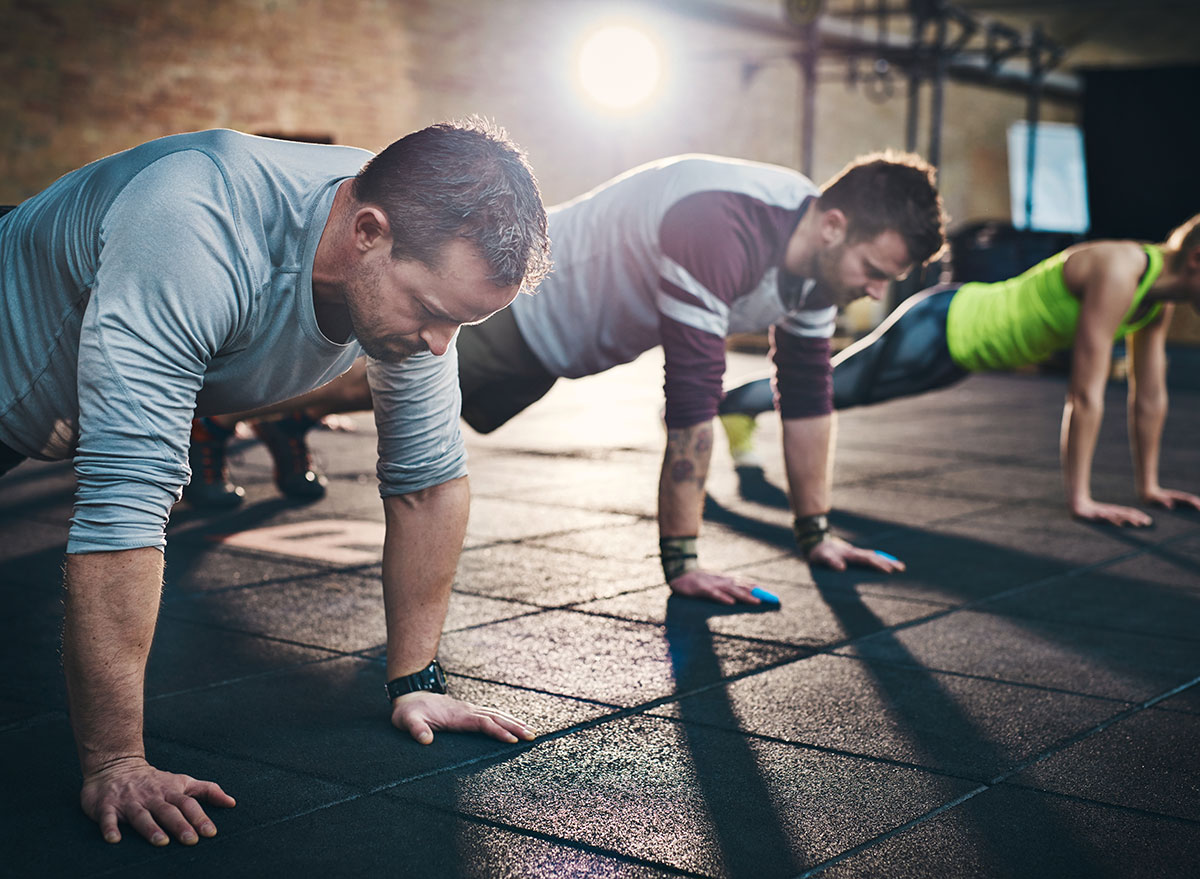
The gym can quickly become a self-confidence-destroying zone. Becoming your fittest self takes time and everyone has their own set of limits when it comes to the ways and speed at which their bodies can grow in strength. "Instead of trying to match weights or pace with the person next to you, try to compete against yourself, and incrementally increase [your personal best,]" says Dr. Ochiai. You can be your biggest competition and your best supporter, too!
You Try To Cram A Workout In
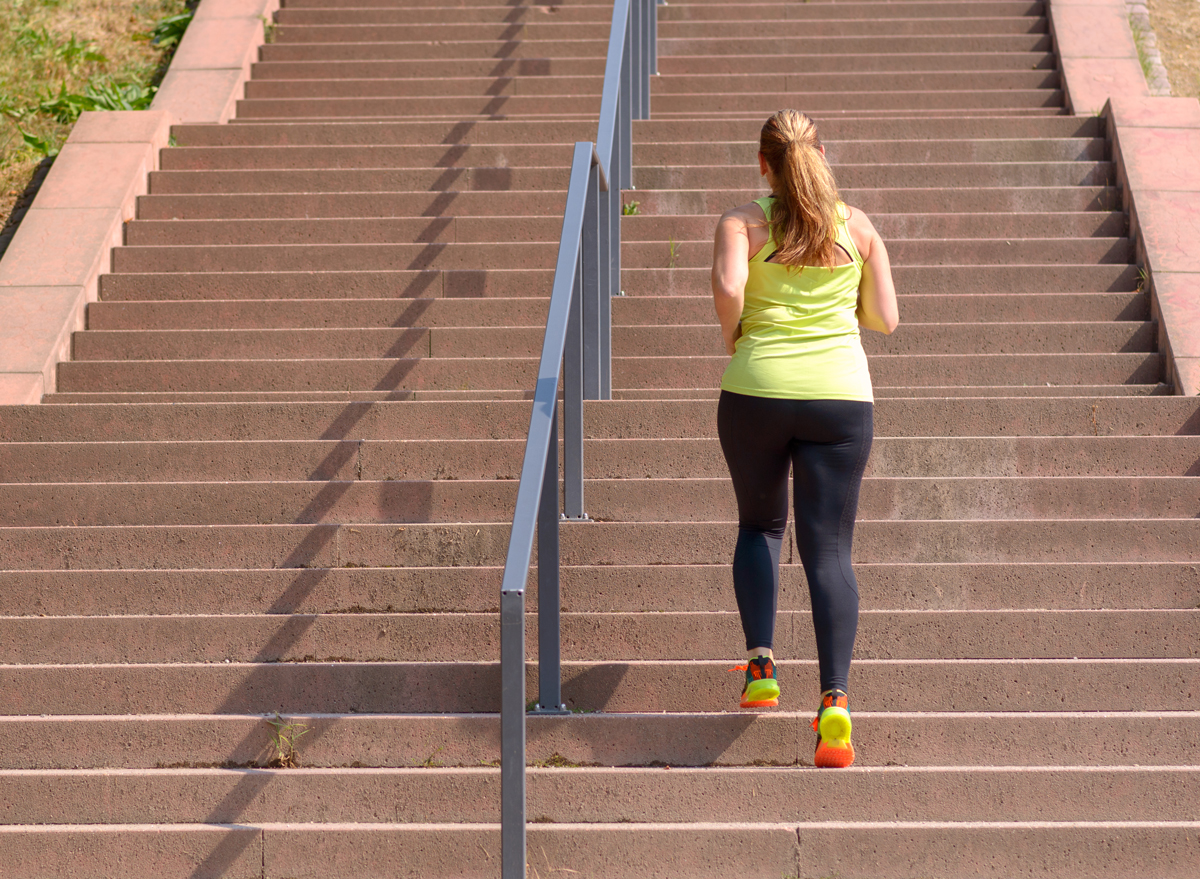
Slow and steady wins the race—always. Just like with dieting, the best results are the ones you achieve over time. Dr. Ochiai explains that rushing a workout is never a bright idea: "Everyone is busy, but don't try to cram in extra weight or intensity if you're pressed for time." Instead, he recommends that you take it easy. Build in a warm-up time, such as on a bike, before starting the rest of your work out," he says.
One suggestion: Pencil in the amount of time you'll need each day to achieve those body shaping goals. By giving yourself permission in this way, you'll be more satisfied with your workout at the end of each period—and you'll be more likely to actually complete your goals. Chances are if you feel the time is crammed you'll give yourself more reasons to not work out at all.
You Don't Drink Enough Water

Drinking water can get tedious, but that's where detox water changes the fitness game. When it comes to getting fit, hydration is key. Not only does consuming the recommended water intake a day boost your chances of achieving your weight-loss goals, but it helps make your day-to-day activity at the gym so much easier. Water helps to both boost your energy levels and helps your muscles stay pliable. H2O acts as a lubricant for your muscles and joints, and being hydrated helps to prevent feelings of stiffness and increases your body's strength and flexibility.
You Challenge Yourself Too Much
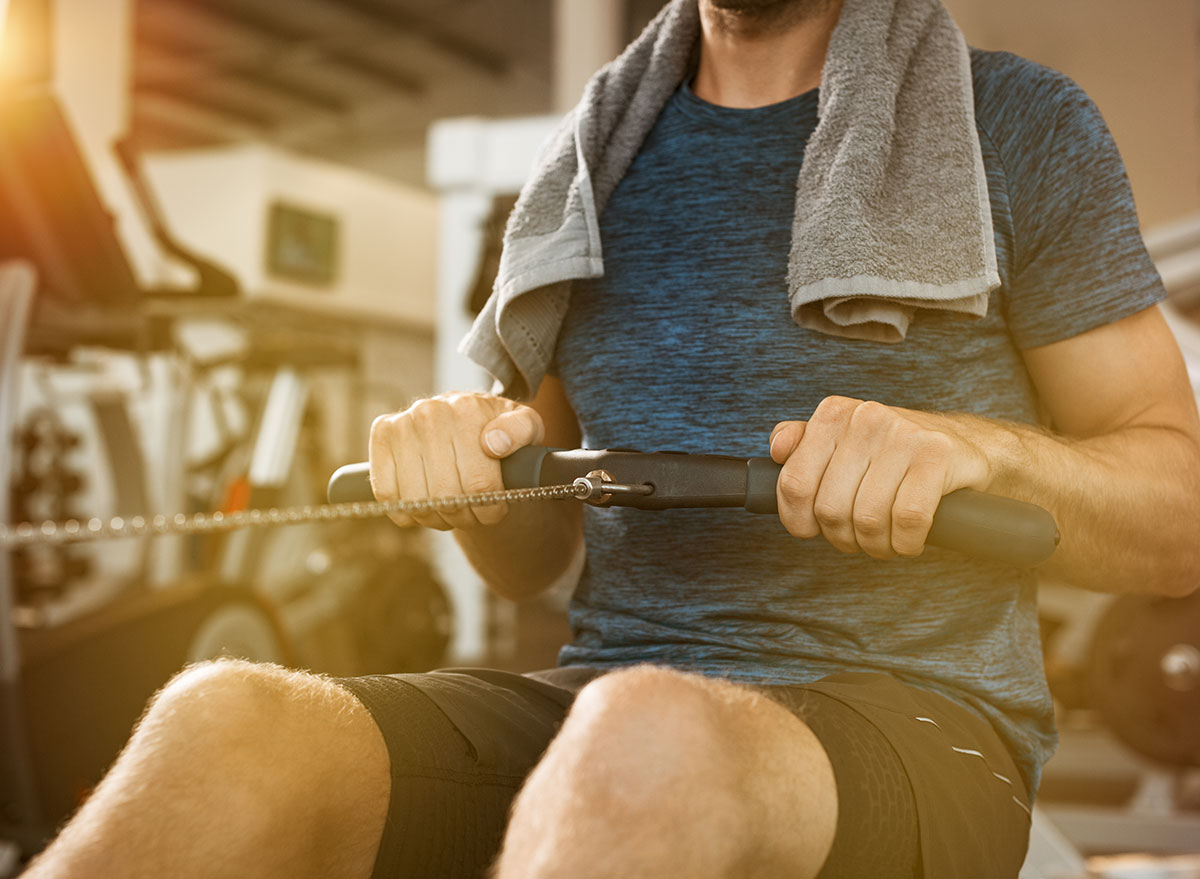
If you think you'll be able to complete the same spin or barre workout as your friend who's been doing it for years, think again. Instead, celebrity trainer Michael Blauner suggests that you start with something that's a bit easier.
"You want to feel like you're working but you don't want to be incapacitated the next day! (I've heard many people say that they pushed or were pushed too hard the first time and they never went back to it)," he says.
Don't fall into that trap. It's okay to walk in the middle of your jog, and it's okay to take a breather. In fact, it's better for you, because you'll be more likely to be pleased with yourself if you chose to slow down and were able to complete the workout rather than feeling like you couldn't do it at all. Result: You'll go back and do it again.
Looking for more helpful tips? Sign up for our newsletter to get daily recipes and food news in your inbox!
You Don't Notice Improvement
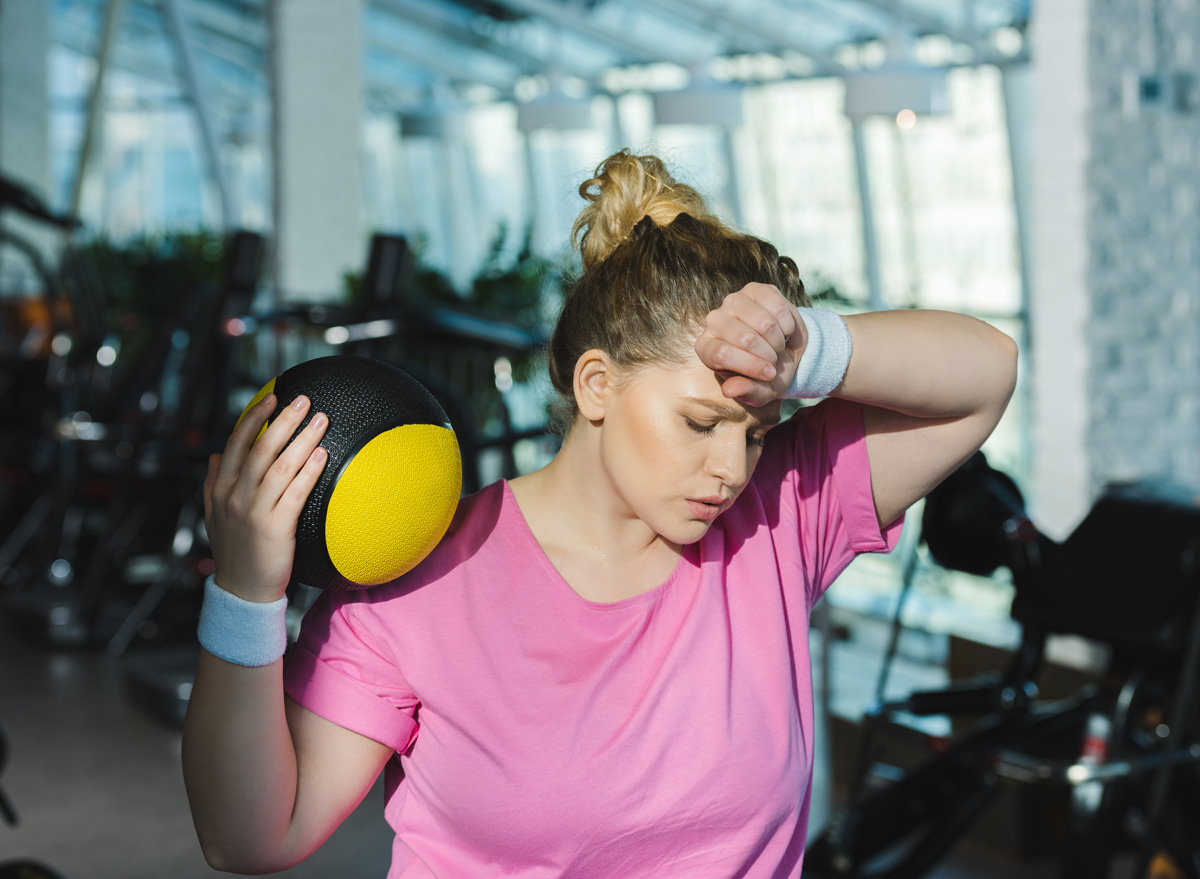
Change takes time. In fact, it may take a couple of weeks to see your visible changes in your body. But, there are other great benefits that happen faster—and you may not be giving yourself enough credit for those.
"People often get discouraged when starting an exercise routine, because they didn't immediately drop a dress size or 10 pounds," says Dr. Ochiai. "Exercise has many benefits, including better sleep and better concentration and an overall feeling of well-being. Remember to look for these changes for positive reinforcement initially."
To help track your progress, consider keeping a journal, and log what you're eating, your exercise routine, and how you're feeling. This way, when you notice an emerging soreness or injury, you can look back with a health professional on your daily habits and try to pinpoint a catalyst.
You Don't Fuel Properly

You wouldn't fill a fancy sports car with the regular gas, would you? The same goes for your body. If you're asking for a premium performance, you have to keep it fueled properly. Before the gym, it's important to eat a meal that will provide your body with the energy and support it needs to fully push yourself. So, steer clear of the worst healthy snacks for weight loss.
As for not eating at all? That's a bad idea.
When we don't eat before a workout, the chances of feeling weak mid-way through are higher—and that only gives you more excuses to slash your workout time. "People who are new to exercise often don't take into consideration the importance of pre- and post-workout meals," Jennifer Leah Gottlieb, personal trainer, and creator and founder of JLG Fitness explains. "If they don't eat the right combination of proteins and carbs before and after working out, they can have difficulty maintaining energy and recovering properly."
You Don't Consult An Expert

When learning something new, you're always better off asking someone who knows best. To help you get on track, Blauner recommends learning from a qualified instructor. From then on out, be eager to learn, there is always room for improvements and advancements at the gym. You can always get stronger. He says "once you decide what type of training that you would enjoy, read up on it. Go to multiple sources for your information. Even YouTube can provide some useful videos on your choice."
You Don't Believe You Can Change
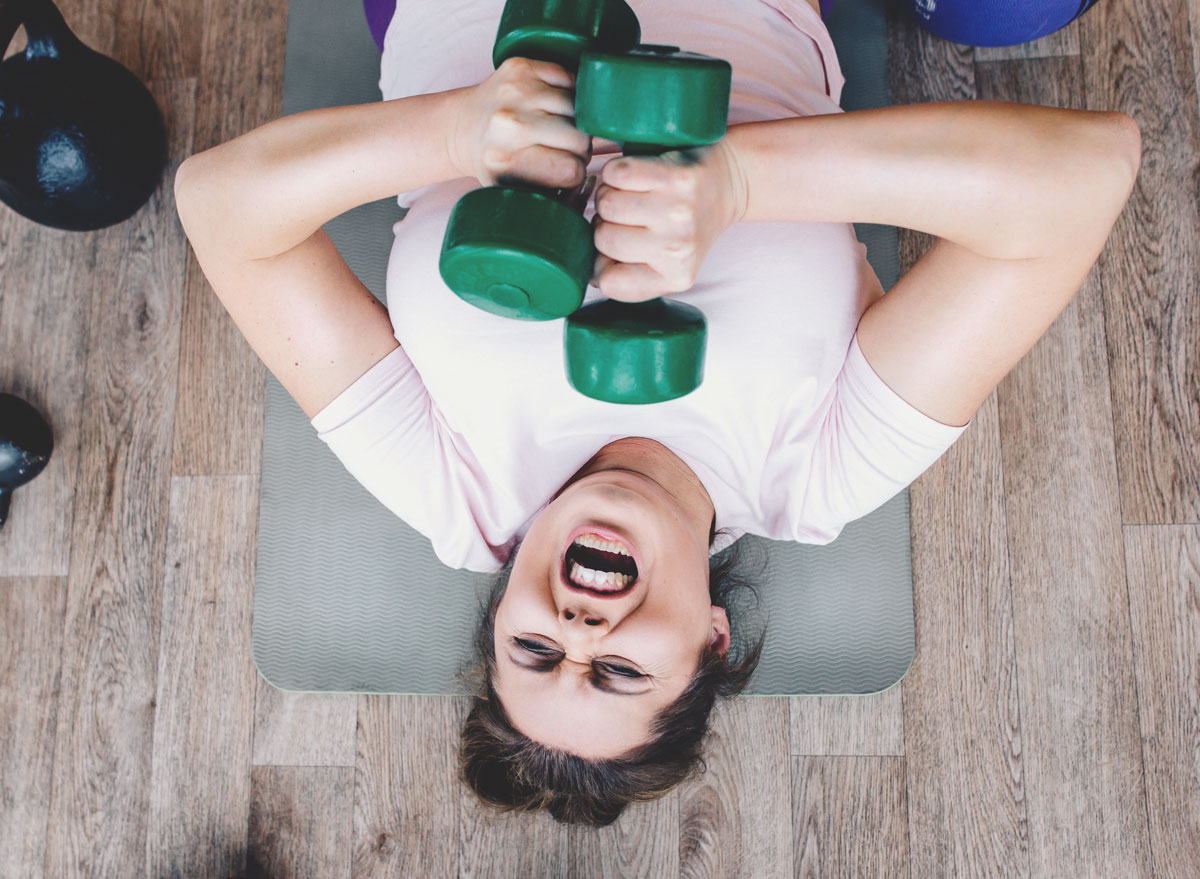
Say it with us: Progress takes patience. It's much easier for our bodies to fall out of shape than to morph into shape. So do your best not to get discouraged when you're just getting back into the swing of things.
"Going back to [working out] after a lengthy time off requires the person to build back up to his/her previous fitness level, and not just take it up where they left off," says Dr. Ochiai. Recognize that your body may be different compared to the last time you worked out, and accept that you may have to begin at the ground level again. You can and you will reach your goal, but it will take some time to get there. Try your best to believe in yourself and allow yourself time to get to where you want to be.
You Forget To Stretch
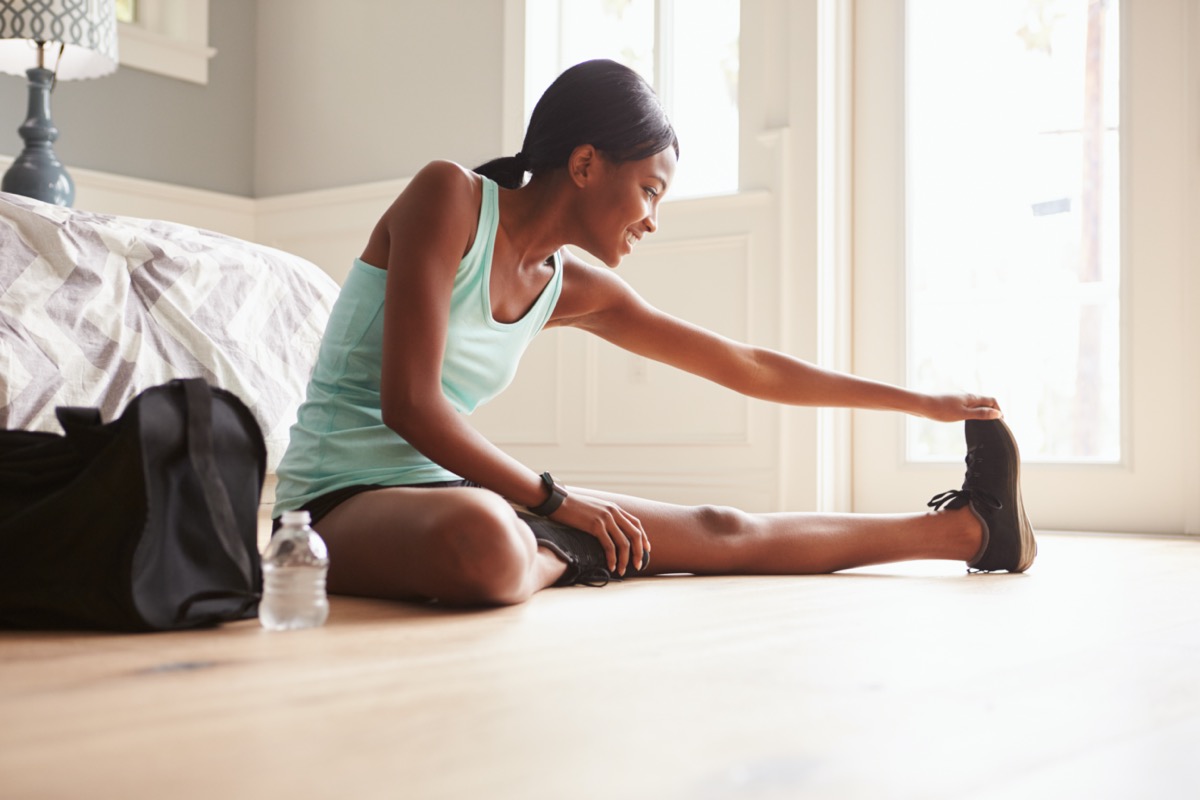
It may seem slow and inefficient when it comes to burning calories, but stretching helps prepare your body for the exercise it's about to get and cool down from the intensity it just received. In fact, stretching leads to greater outcomes in one of the most important aspects of exercise: flexibility. By increasing your body's ability to "touch your toes," for example, you will find it easier to squat, deadlift, pull up, and complete a ton of different flexibility-related exercises—many of which probably seemed more difficult before.
Stretching is also protection against getting hurt.
"It is super easy to get injured during a workout without warming up and getting the body ready for exercise! It's important to take at least 10 minutes at the beginning of a workout to increase the blood flow to the muscles," says Gottlieb. Stretching also helps minimize any discomfort, whether it be lower back pain, in your knees, or your in your arms. Soreness is minimized because stretching helps improve blood circulation. It allows the body to cool down and helps slow down a racing heartbeat after experiencing rates of great intensity. And because exercise without proper nutrition is like solving an equation and then erasing your work, besides stretching, don't miss these 20 Post-Workout Recovery Recipes to refuel and rebuild.








